Commercial recycling collection
Save on commercial recycling quotes today
Just enter your business postcode…
Save on commercial recycling quotes today
Just enter your business postcode…
Start saving now
In today’s eco-conscious business world, efficient commercial recycling is essential to reduce business waste costs and improve companies’ brand images. Across the UK, various locations stand out for their impressive commercial recycling efforts:

Leeds operates several advanced commercial recycling facilities, including the Seacroft and Kirkstall Road recycling centres. These can handle large volumes of commercial waste.

Sheffield businesses are leading the way in commercial recycling, with local companies partnering with private recycling firms to manage their waste effectively.

Edinburgh businesses actively engage in commercial recycling, collaborating with private recycling companies to manage their waste efficiently.

Bristol City Council offers paid services for commercial recycling, providing businesses with solutions to reduce their landfill contributions.

In London, commercial recycling processes materials like cardboard, paper, plastics, and metals, helping businesses save money by reducing waste disposal costs.
Adopting eco-friendly practices is a responsibility in today’s business world. Our commercial recycling comparison service meets the needs of businesses committed to sustainability.
From streamlined collection to regulatory compliance, we connect you with the best recycling services.
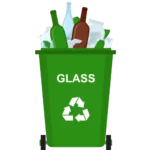
Commercial glass recycling involves collecting, sorting, and processing glass waste from restaurants, pubs, hotels, and offices.
Recycled glass is used to manufacture new glass products, such as bottles and jars.

Dry mixed recycling, also known as single-stream recycling, collects recyclable materials
together in a single bin or container.
Dry Mixed Recycling simplifies business waste management and makes participating easier for employees.
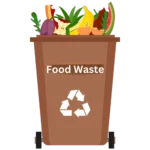
Food waste is any food or beverage discarded as inedible – including scraps from food preparation, spoiled food, and uneaten leftovers.
Food waste can be composted or anaerobically digested to produce valuable products such as compost, biogas, and digestate.
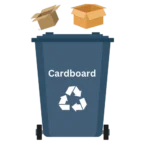
Cardboard recycling involves collecting and processing discarded cardboard materials, including shipping boxes, packaging, and other paper-based products, to be reused.
The recycling process starts with sorting and cleaning the cardboard. It is then pulped, broken down into fibres, cleaned, and filtered to remove impurities. The pulp is then dried and pressed into new paper products.
💡Cardboard waste is a valuable product, and some waste providers offer a waste rebate for large regular volumes of recyclable cardboard.
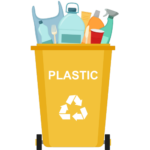
Commercial plastic recycling is necessary for retail and manufacturing, generating various types of plastic waste, including packaging materials, plastic bottles, containers, wrapping films, and disposable cutlery.
The plastic waste is collected, sorted, cleaned, and then processed into pellets to manufacture new plastic products such as bottles, containers, packaging materials, and various plastic components.
💡Plastic recycling is usually exported abroad for processing.
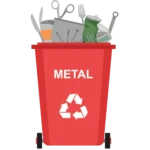
Commercial metal recycling involves collecting, sorting, and processing various types of metal waste from the construction, automotive, manufacturing, and electronics industries.
These industries produce metal waste, including steel beams, aluminium siding, copper wiring, car parts, and electronic components.
Metal waste is sorted by type, cleaned, and melted in a furnace. The molten metal is then poured into moulds to create new products such as appliances, tools, furniture, and building materials.
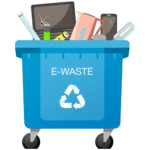
Commercial e-waste recycling collects, sorts, and processes electronic waste from tech companies, offices, schools, and healthcare facilities.
These industries generate e-waste, including old computers, monitors, printers, and mobile phones.
The e-waste is carefully dismantled to separate valuable components like metals, plastics, and circuit boards. These materials are then processed and recycled into new products such as electronic components, metal alloys, and plastic items.
Commercial recycling costs depend on several factors, such as the frequency of collections, location, and types of services.
Here are the three most significant costs associated with recycling for your business:
Check out our complete guide on commercial waste collection costs for more details.
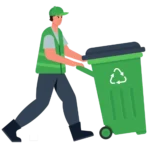
Collection costs are typically the largest part of commercial recycling expenses. These vary based on collection frequency, waste volume, and distance to the recycling facility.
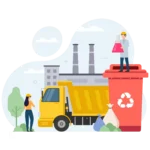
Processing costs include sorting, cleaning, and preparing recyclable materials for further use. These expenses cover labour, equipment, and facility costs.
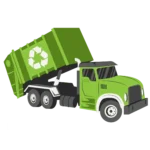
Sometimes, businesses may face disposal costs for non-recyclable materials mixed with their recyclable waste. These costs cover the processing, landfill, or incineration of these unwanted items to ensure proper disposal.
Effective recycling can result in significant long-term savings for businesses by lowering waste disposal costs, reducing waste collection frequency, and potentially generating rebates from recyclable materials.

Recycling can significantly reduce tipping fees by diverting waste from landfills, saving businesses substantial amounts on waste disposal costs and the landfill tax.
Efficiently separating waste lowers expenses, as general business waste is the most expensive type of waste disposal.

Some businesses can generate revenue by selling recyclable materials.
For example, a business with significant cardboard waste can sell it to recycling companies, creating additional income. This revenue comes in the form of waste rebates and can help offset the cost of disposing of general business waste.

Efficient recycling also offers short-term benefits. Businesses may qualify for tax breaks or other incentives.
For example, a manufacturing company that recycles its scrap metal might receive a rebate from the local government. Additionally, many waste management companies provide discounts to those implementing recycling programs.
Here are the potential cost savings from efficient recycling for businesses:
| Source of Savings | Potential Savings |
|---|---|
| Reduced Waste Disposal Costs | Thousands of pounds per year for a business diverting tonnes of waste from landfills annually |
| Reduced Waste Collection Costs | Hundreds of pounds per year for a business recycling half of its waste |
| Increased Revenue from Recyclable Materials | Varies depending on the type and quantity of recyclable materials generated |
| Reduced Environmental Impact | Long-term savings in terms of reduced air and water pollution, along with mitigated greenhouse gas emissions |
When it comes to commercial waste collection, commercial recycling involves collecting, sorting, and processing waste materials from businesses for reuse or conversion into new products.
It plays a crucial role in reducing the environmental impact of commercial activities by diverting waste from landfills and minimising the need to extract new raw materials.
Here’s a table outlining the different types of waste and what they can be recycled into.
| Waste Type | Common Products | Products Made from Recycled Material |
|---|---|---|
| Paper | Cardboard boxes, newspapers, magazines, envelopes, office paper | Tissue paper, toilet paper, cardboard boxes, paper bags, egg cartons, greeting cards, notebooks, writing paper |
| Plastic | PET bottles, HDPE containers, LDPE bags, PP containers | Soft drink bottles, yogurt containers, milk jugs, detergent bottles, packaging trays, carpet fibers, fleece, textiles, toys, construction materials |
| Glass | Bottles, jars, drinking glasses | Bottles, jars, drinking glasses, fiberglass insulation, glass beads, glass countertops, decorative glass products |
| Metal | Cans, foil trays, aluminum pots and pans | Aluminum cans, steel cans, tin cans, aluminum foil, soda cans, food cans, beverage cans, steel drums, car parts, building materials, appliance parts |
| Textiles | Clothing, fabrics, towels, bedding | Clothing, fabrics, yarn, insulation, home textiles, carpets, rugs, towels, bedding, stuffed animals, car upholstery |
| Wood | Furniture, pallets, packaging | Furniture, pallets, packaging, lumber, paper pulp, particleboard, MDF, newspaper, cardboard |
| Food waste | Food scraps, meat and dairy products, vegetable peels | Compost, biogas, animal feed, biofuels, fertilizers, soil amendments |
| Garden waste | Grass clippings, leaves, twigs, flower trimmings | Compost, mulch, soil amendments, animal bedding, biofuels |
| Batteries | Used batteries of all types | New batteries, recycled materials, zinc, manganese, lead, cobalt, nickel, lithium, cadmium |
| Electronics | Computers, TVs, phones, laptops, tablets | Circuit boards, plastics, precious metals, glass, steel, copper, aluminum, batteries, recycled materials |
| Clothes hangers | Plastic hangers, wire hangers | New hangers, recycled materials, plastic, metal |
| Carpets | Carpet tiles, rugs, underlay | New carpets, recycled materials, fibers, padding, adhesives |
| Tetra Paks | Cartons for drinks, milk, juices | New cartons, recycled materials, paperboard, plastic, aluminum |
| Light bulbs | Incandescent bulbs, halogen bulbs, LED bulbs | Recycled materials, glass, metal, filaments, plastics |
| Small appliances | Toasters, kettles, mixers, blenders | New appliances, recycled materials, metals, plastics, glass, rubber, ceramics |
| Toys | Plastic and metal toys, wooden toys | New toys, recycled materials, plastics, metals, wood, fabrics, foam, rubber |
| Stationery | Pens, pencils, markers, crayons | New stationery, recycled materials, plastic, wood, metal, pigments |
| Food packaging | Plastic wraps, foils, pouches, cartons | Food packaging, recycled materials, plastic, aluminum, paper, foil, adhesives |
| Construction waste | Bricks, tiles, concrete rubble, wood | New construction materials, crushed stone, recycled materials, asphalt, gravel, concrete, wood chips, metal scraps |
| Hazardous waste | Paint, batteries, solvents, cleaners | Specialized treatment and disposal, recycling of specific components, hazardous waste management |
Here’s a link to our article on hard-to-recycle items for businesses.
Discover the journey from collection to re-manufacturing with recycled materials.
Understanding the recycling process can help you appreciate the impact of your efforts and inspire more sustainable practices.
Here’s a fascinating overview of the recycling process, broken down into five key steps.

Recyclable materials are separated from non-recyclable into separate commercial waste bins by UK businesses.
Commercial waste providers provide separate bins for paper, plastic, metal, glass and food waste allowing effective segregation of waste at source.

Business waste collection providers offer regularly scheduled pick-ups of separate recycling streams generated by local businesses.
The collection schedule is customised based on how much recyclable waste each business produces.
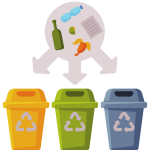
At the processing facility, collected recyclables are sorted by type.
This sorting process can involve manual sorting lines or automated machines. Automated systems use optical sensors and magnets to identify and separate different materials.
💡Find out more in our full guide to recycling technology.

Once sorted, recyclables undergo several preparation steps, such as cleaning, baling, and shredding, to prepare them for further processing.
Cleaning eliminates contaminants like food, grease, and labels. Baling compresses the materials to reduce volume and ease transport. Shredding breaks the materials into smaller pieces, making them easier to process.

Recycled materials are transformed into new products like paperboard, plastic lumber, and glass containers.
This transformation involves melting, moulding, or extruding the recycled materials into desired shapes. The finished products are then sold to manufacturers or consumers.
When it comes to commercial recycling, the specific bins you’ll need depend on the types of materials your business generates and the overall volume of waste it produces.
However, as a general rule, you’ll need at least three separate bins: one for dry mixed recyclables, one for food waste, and one for general waste.
A standard recycling bin with a blue or green lid is ideal for dry mixed recyclables. These bins typically accommodate paper, cardboard, plastic bottles and containers, metal cans and tins, and aluminium foil and trays.
Food waste uses a standard wheelie bin. General waste, including non-recyclable items like plastic wrap, Styrofoam, and non-recyclable packaging, can be disposed of in a standard waste bin with a black or grey lid.
In addition to these three primary bins, you may also need specific bins for particular waste streams, such as:
Strategic bin placement is key to encouraging employee participation in recycling and composting programs. Position the bins in convenient locations that are easily accessible to employees.
By implementing the correct type of bins and placing them conveniently, you can make recycling and composting a breeze for your employees, reducing your environmental impact and saving money on waste disposal costs.
These three regulations are the cornerstone of waste management law in the UK and provide a framework for businesses to minimise their environmental impact and manage their waste responsibly.
Please read our guide to understand more about the devolved waste regulations surrounding commercial waste.
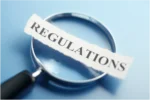
They are also known as the Circular Economy regulations. These regulations require businesses to take all reasonable steps to prevent, reuse, recycle, or recover waste. They also outline requirements for waste segregation, storage, and transfer.

These regulations set forth the basic principles for managing waste in England and Wales. They require businesses to dispose of waste responsibly and prevent waste from escaping into the environment.
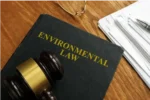
The Environmental Protection Act 1990 establishes the duty of care for businesses, requiring them to ensure that their waste is managed responsibly and disposed of lawfully.
Implementing effective commercial recycling practices can significantly reduce waste disposal costs, minimise environmental impact, and enhance a company’s sustainability profile. Here are some in-depth commercial recycling best practices to consider:
A commercial waste audit is crucial for understanding the nature and composition of your waste streams. This involves identifying and quantifying the different types of waste generated by your business operations.
You can develop targeted waste reduction and recycling strategies by analysing your waste audit findings.
A well-defined waste management policy outlines the company’s commitment to commercial waste minimisation, recycling, and responsible business waste disposal practices. It should communicate the roles and responsibilities of employees, waste segregation guidelines, and procedures for handling and storing waste materials.
Source reduction is the most effective approach in the waste hierarchy, aiming to minimise waste generation at the source. This can involve adopting environmentally friendly practices, such as reusable items, reducing packaging, and implementing lean manufacturing techniques.
Proper business waste segregation is essential for maximising recycling efforts and preventing contamination of recyclable materials.
Provide clear and consistent signage for different waste streams, such as general waste, recyclables, food waste, and hazardous materials.
Select appropriate commercial waste bins and containers that are clearly labelled and conveniently located throughout your facility. Ensure that the size and type of bins match the specific waste streams generated in each area.
Select a waste management provider with a proven track record in sustainable waste management practices and experience in handling your specific waste streams. Ensure they are licensed, insured, and compliant with all applicable environmental regulations.
Regularly monitor your recycling program’s performance to identify areas for improvement. Track the volume of waste generated, recycled, and disposed of. Use this data to set recycling goals, measure progress, and optimise waste management strategies.
Consider implementing waste management software or technology to automate waste tracking, reporting, and route optimisation tasks. This can help streamline your waste management processes and improve efficiency.
Foster a culture of environmental responsibility within your organisation. Encourage employee participation in business recycling initiatives, recognise recycling champions, and promote the company’s commitment to sustainability.
By implementing these in-depth commercial recycling best practices, businesses can achieve significant environmental benefits, reduce waste disposal costs, and enhance their reputation as a sustainable company.